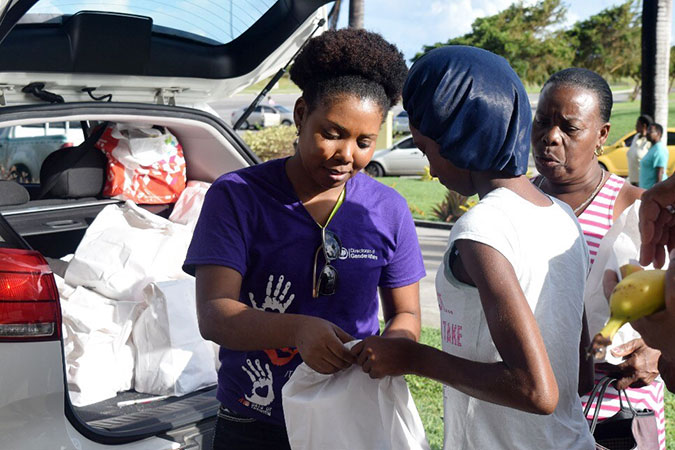From where I stand: Leaving no one behind in Barbuda
As the hurricane season ends in the Caribbean, and three months since Hurricane Irma caused the entire island of Barbuda to evacuate, Farmala Jacobs, Acting Executive Director of the Directorate of Gender Affairs of Antigua and Barbuda says the devastating hurricanes across the Caribbean this year show that we can no longer afford to leave anyone behind, and most certainly not women and girls.Date:

Since Hurricane Irma, the Red Cross registered over 400 Barbudan households impacted, and at least half of those households are headed by women. Since women have lower paying jobs, and were already at a disadvantage because of unequal access to resources and relevant information, and power imbalance, they are affected significantly and differently than men. They are also more vulnerable to increased risk of sexual and gender-based violence.
The time has come for us to ask ourselves some serious questions—What is it that we can do differently? What can we no longer afford to do? What does true sustainable development look like?
I have learnt that having a national gender mechanism is critical, because then you can assess, survey and understand the true impact of any disaster on women as well as men, including their risk of experiencing violence [during crises].
It is also very important to make sure that those who have been affected by a crisis are fully participating in response and relief efforts. For example, after Hurricane Irma, we found that the Barbudans were more likely to access relief services when other Barbudans were involved in the planning and distribution of the services. The fact that women are well represented on the Barbuda Council helps. They are bringing different perspectives of women, men and children in planning relief and recovery. Based on what the women informed us, we redefined our referral pathways, mapped out where Barbudans were located, which shelters were near them and how they would access them.
During the 16 Days of Activism, we are working on a wide awareness-raising journey so that everyone—Antiguans and Barbudans alike—know and understand the reporting mechanisms and the referral pathways for gender-based violence.
Over 40 shelter managers will be trained to have the requisite knowledge and skills to refer survivors to the information and services that are in place.
We cannot afford to leave anyone behind. –By questioning what we can no longer afford to do and how we can achieve sustainable development collectively as a people, we will understand and then dismantle the systems that leave behind people in the first place. We can then envision and then build new futures, free of violence and equal for all people.”
Farmala Jacobs, 28, is the Acting Executive Director of the Directorate of Gender Affairs of the twin island state of Antigua and Barbuda, which suffered the devastating impact of Hurricane Irma in September 2017. Through the Ministry of Social Transformation, her office, with the support of UN Women and the Central Emergency Relief Fund, is one of the leading agencies in ensuring there is a gender-responsive approach to recovery after the hurricane. Her work contributes to Sustainable Development Goal (SDG) 5 on gender equality and empowerment of all women and girls, SDG 13, which targets strengthening resilience and adaptive capacity to climate-related disasters, and SDG 10 that aims to reduce inequalities within and between countries.
Read more stories in the “From where I stand...” editorial series.